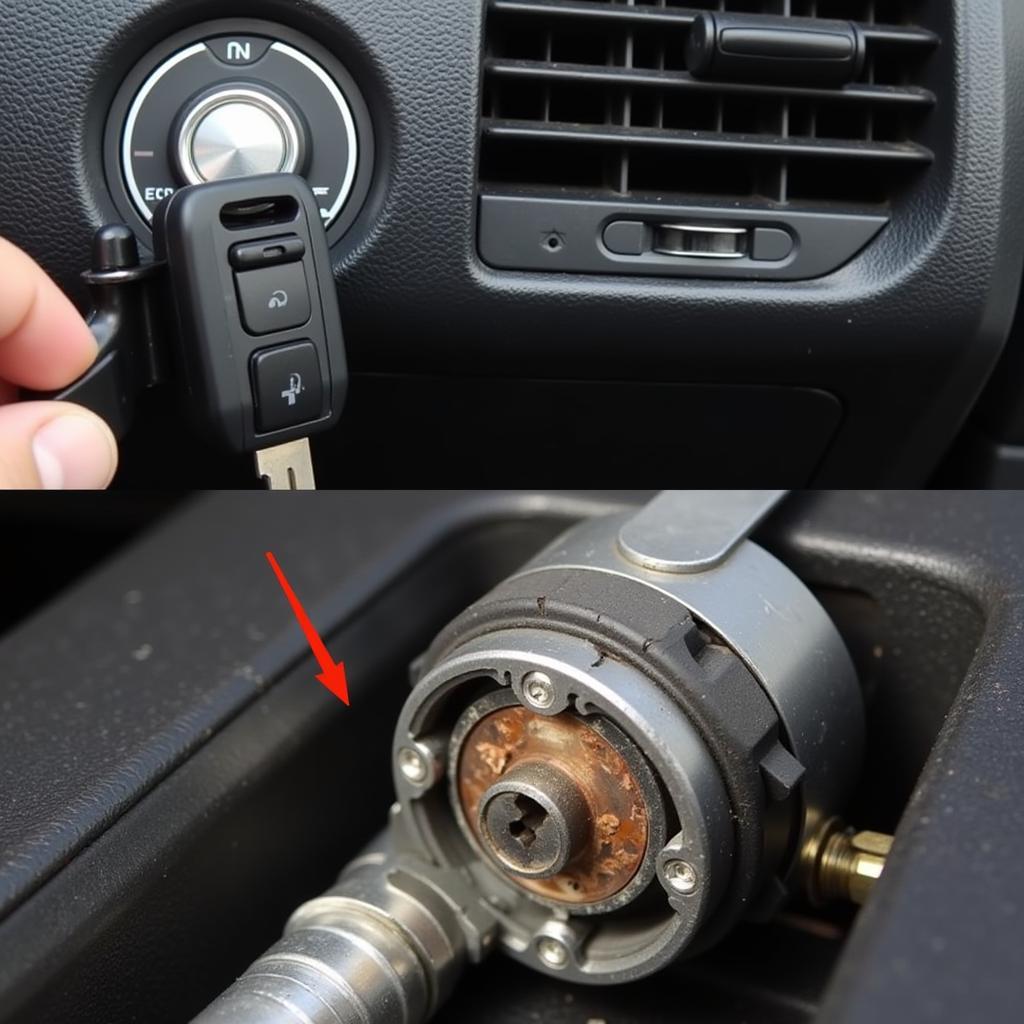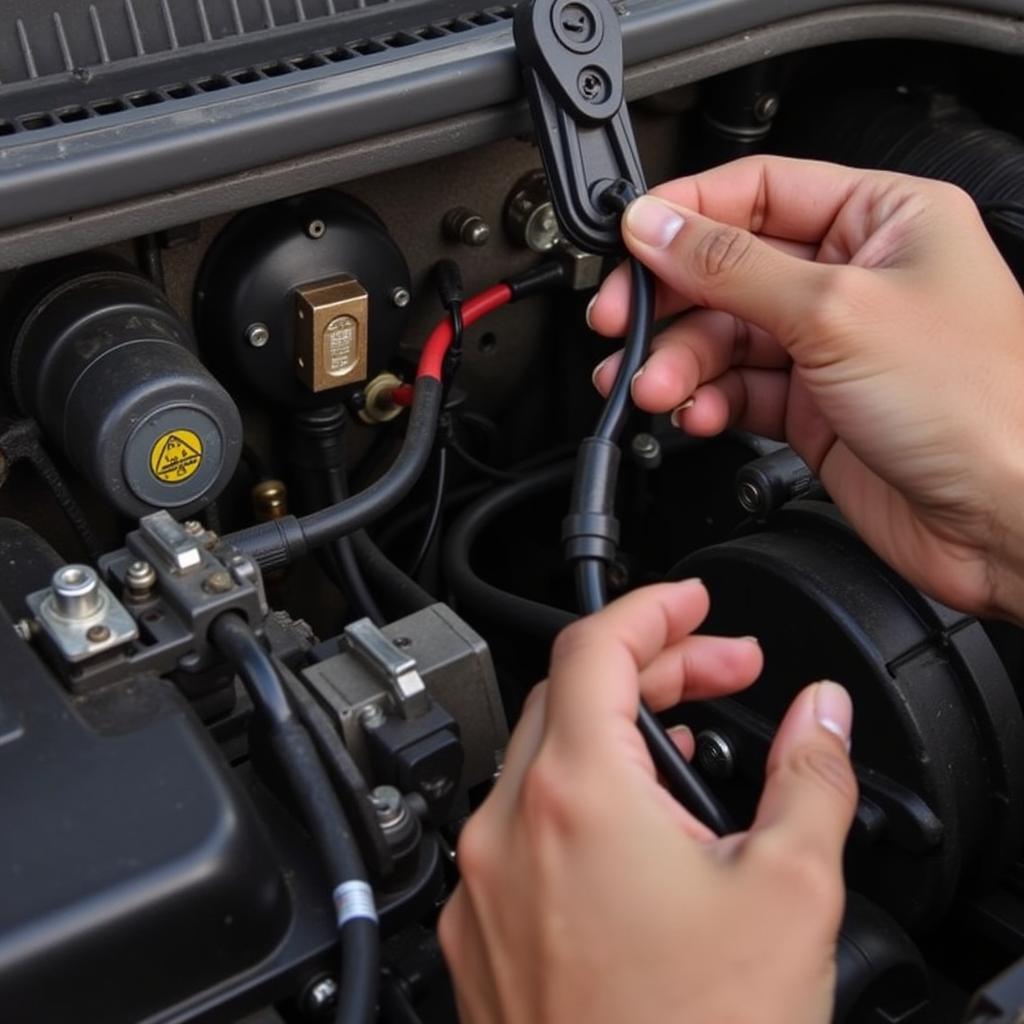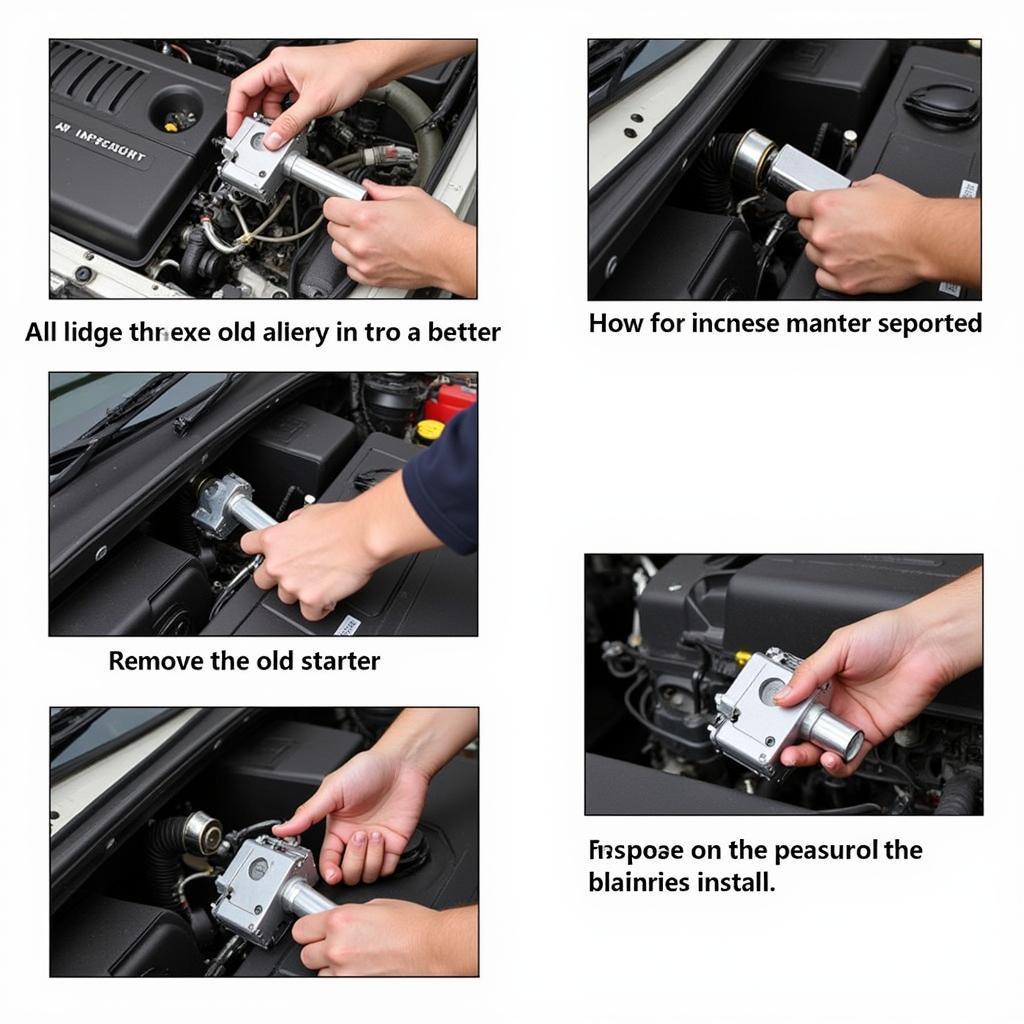If you’re asking yourself, “How Do I Know Have A Problem With Car Starter?”, you’ve come to the right place. This article will guide you through the common symptoms of a failing car starter, helping you diagnose the issue and decide on the next steps. From the tell-tale clicking sound to the dreaded silence, we’ll cover everything you need to know about car starter problems.
A faulty starter can be a real headache, leaving you stranded and frustrated. Understanding the signs of a failing starter is crucial for addressing the problem promptly and avoiding further complications. We’ll delve into the mechanics of the starter, the common causes of failure, and provide some troubleshooting tips to help you get back on the road. You might find that identifying car electrical problems is easier than you think. Click here to learn more: how to identify car electrical problems.
Common Symptoms of a Bad Car Starter
Several indicators can point towards a faulty starter. Recognizing these symptoms early on can save you time and money in the long run.
-
Clicking Sound: Perhaps the most common symptom is a rapid clicking sound when you turn the key. This usually indicates a weak or failing starter solenoid, the electrical component responsible for engaging the starter motor.
-
Grinding Noise: A grinding noise suggests that the starter gear isn’t meshing properly with the engine’s flywheel. This can be caused by a worn starter gear or flywheel teeth.
-
Intermittent Starting: Sometimes the car starts perfectly, and other times it struggles. This inconsistency is often a sign of a failing starter motor or solenoid.
-
Slow Cranking: If the engine cranks slowly, it could indicate a weak battery or a failing starter. A slow crank often leads to a no-start situation eventually.
-
The Engine Doesn’t Crank at All: When you turn the key and nothing happens, it could be a dead battery or a completely failed starter.
 Car Starter Clicking Sound When Key Turned
Car Starter Clicking Sound When Key Turned
Diagnosing Car Starter Problems
Determining whether the problem lies with the starter or the battery requires a few simple checks.
-
Check the Battery: A weak battery can mimic starter problems. Have your battery tested to rule out this possibility.
-
Test the Starter Solenoid: A simple test involves using a screwdriver or jumper cable to bypass the solenoid and see if the starter engages. Caution: This test should be performed carefully and only by someone familiar with car electrical systems.
-
Inspect the Wiring: Check the wiring connections to the starter for corrosion, looseness, or damage.
If you’re not comfortable performing these checks yourself, it’s best to seek professional help. You can find qualified mechanics near you specializing in starting problems by following this link: car mechanic near me for starting car problems.
Troubleshooting Tips for Car Starter Issues
While a failing starter typically requires replacement, there are a few troubleshooting steps you can try.
-
Tap the Starter: Sometimes, a gentle tap on the starter with a hammer can temporarily free up a stuck solenoid or motor.
-
Check the Neutral Safety Switch: Ensure the car is in park or neutral, as a faulty neutral safety switch can prevent the starter from engaging.
-
Clean the Battery Terminals: Corrosion on the battery terminals can impede the flow of current to the starter.
 Testing Car Starter Solenoid With Jumper Cables
Testing Car Starter Solenoid With Jumper Cables
“A common mistake car owners make is assuming a dead battery when they experience starting problems. Always check the starter before replacing the battery,” advises John Smith, a seasoned automotive electrician with over 20 years of experience. He also emphasizes the importance of regular maintenance to prevent such issues.
How Much Does it Cost to Replace a Car Starter?
The cost of replacing a car starter varies depending on the make and model of your vehicle and labor costs. Typically, you can expect to pay between $200 and $500 for the repair.
Preventing Future Starter Problems
Regular maintenance can help prevent starter problems. Ensuring clean battery terminals and regularly inspecting the wiring can prolong the life of your starter.
 Car Starter Replacement Process
Car Starter Replacement Process
“Maintaining proper battery health is crucial for starter longevity. A weak battery puts extra strain on the starter, leading to premature failure,” adds Jane Doe, a certified mechanic and automotive instructor.
If you’re experiencing issues driving uphill, a bad starter could be a contributing factor. Learn more about uphill driving problems here: car problems driving uphill. Understanding your vehicle’s mechanics can help you identify potential issues early on. Solenoid issues can also mimic starter problems. Learn more about solenoid problems car. For those interested in classic cars, understanding common muscle car problems can be invaluable.
Conclusion
Knowing how to identify a problem with your car starter is crucial for preventing unexpected breakdowns. By understanding the common symptoms, diagnostic procedures, and troubleshooting tips outlined in this article, you can address the issue promptly and get back on the road with minimal hassle. If you have any further questions or need assistance, feel free to contact us at AutoTipPro. Our phone number is +1 (641) 206-8880, and our office is located at 500 N St Mary’s St, San Antonio, TX 78205, United States. We’re here to help!






Leave a Reply